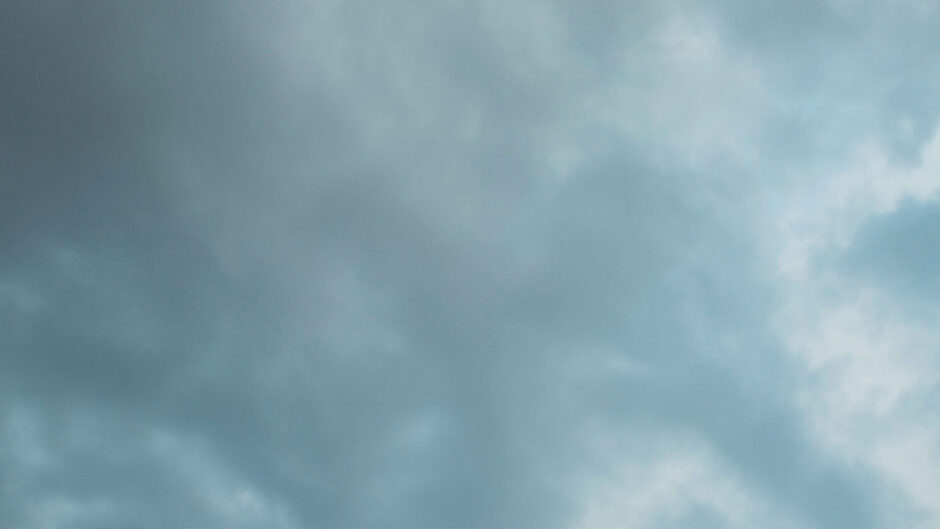Nobody saw this storm coming. Not the scale, the intensity, the duration or the destruction. The need for emergency financial assistance that has flooded in as the
Covid-19 pandemic has swept across the nation since last March has been unprecedented. The Two Ten Foundation has responded to many large-scale crises successfully over its 82-year history—hurricanes, tornados, wildfires and man-made disasters like wars and recessions—but nothing to rival the scale and intensity of this pandemic. This is the perfect storm. It’s as if every single region of the country was slammed simultaneously by a Category 5 hurricane, affecting every tier of the industry.

“Even when large footwear companies shut down, where a lot of their employees turned to us at once, we’ve never seen anything like this,” says Shawn Osborne, CEO of Two Ten Foundation. “It was never national and at this scale—not even remotely close.” The exec adds, “Within a very short period, we started getting applications for assistance nationwide, including Hawaii as well as Puerto Rico, that we typically didn’t hear from.”
The virus doesn’t discriminate. From the C-suite to the warehouse, thousands of footwear employees nationwide have been furloughed or laid off for good. They and their families have faced dire financial decisions–like having to choose between paying for groceries and heat, or rent or medicine. “It could be the person next to you that was living paycheck to paycheck and you don’t even know it because maybe they were ok with their job, but their spouse lost theirs,” Osborne says. “Or they went through a separation or a divorce…it could be any number of situations where the person sitting next to you could have become financially vulnerable.” He adds, “It hasn’t been a specific age or level of position. We’ve had VPs turn to us for assistance. People at all levels and all areas have been reaching out to us this past year.”
“The hardest choice was one that faced so many mothers, which was to pay rent or childcare, because if they didn’t continue paying for childcare, they’d lose their spot,” says Jestina Walcott, director of Program Services for Two Ten and point person on many aid requests. “And if they didn’t have care lined up, they couldn’t go back to work.” Walcott adds that the calls for assistance revealed stressful issues like an increase in funeral and burial expenses, suicides, separations, divorce and domestic abuse. “We had a big increase in providing referrals to counseling for individuals struggling with isolation, depression and addiction, as well as referrals for food banks, utilities assistance and the Salvation Army,” she says, noting that by early spring a “normal day” saw dozens of applications being processed to get funds as quickly and to as many people as possible. It was a race against time, and the peak demand didn’t let up until the fall. “The impact of Covid-19 was so far-reaching, it reminded us that, at some point, almost everyone needs help,” Walcott says. “Footwear families who experienced reduced household income from layoffs and furloughs needed help taking care of their basic needs of food, heat and shelter.”
The numbers are truly staggering: Pre-pandemic, there were approximately 330,000 people employed in the footwear industry in the United States, according to the Footwear Distributors and Retailers of America. That figure plummeted to about 127,000 a few months into the crisis as non-essential retailers closed physical locations when 328 million Americans were urged to stay home for months. And while it’s since rebounded to about 245,000 employees, thousands are still in desperate need of assistance. Two Ten still needs to raise funds while simultaneously keeping up with the daunting demand for assistance. The pandemic-induced storm rages on, and Two Ten remains in all-hands-on-deck mode, doing everything it can to fulfill its primary mission.
“Simply put, Two Ten helps people in need,” says David Kahan, CEO of Birkenstock Americas and current vice chair of Two Ten’s Board of Directors. “While there is a fantastic scholarship program and other valued programs, this is a foundation that, first and foremost, serves people with immediate, serious needs. It’s the difference between making a rent payment, medical costs…helping people survive.” Kahan adds, “You never really know what someone is going through in their personal life, and Two Ten provides a lifeline for those in this industry.”
“It was remarkable to see how our industry leaned in to address the needs of footwear families,” says Debbie Ferree, president and vice chairman of Designer Brands and current chair of Two Ten’s Board of Directors. “Corporations and individuals stepped up their giving and companies created fun ways for their associates to contribute with internal events like sample sales, holiday contests, employee giving programs etc.—all to raise money for Two Ten to help their fellow footwear friends.”
“The pandemic spurred an incredible need for assistance and Two Ten has answered the call,” says Glenn Barrett, CEO of OrthoLite, Two Ten board member and chair of its Major Gifts committee. “When the government was debating PPP (Paycheck Protection Program), Two Ten was mailing out checks.”
Thanks to the continued generosity of industry members, Two Ten has been doing just that: In one Covid-stricken year, the organization distributed $4.3 million to about 6,500 industry members. For comparison’s sake, a typical fiscal year sees Two Ten outlay approximately $2 million to around 2,000 industry members. Pre-Covid-19, there were about 200 companies whose employees turned to Two Ten annually for assistance. This spiked to more than 400 companies in 2020. And while the year fell short of the previous year’s record contributions of $5.5 million, Osborne says Two Ten came “pretty close” ($4.6 million)—despite not being able to hold its annual December industry gala in New York where, in 2019, $4 million of the $5.5 million was raised.
Pandemic Pivots
Losing the revenue-driving Two Ten gala in 2020 was just the tip of the iceberg in terms of how the pandemic forced the organization to pivot—on the fly and quickly. Two Ten realized that to have any hope of keeping up with the record demand for assistance—at a time when many regular contributors were facing extreme financial pressures within their companies—it had to dramatically change its focus and tactics.

As fate would have it, Osborne, who came on board as CEO a few weeks prior to the pandemic, was just the man for the job. The fact that he had no ties to existing Two Ten programs coupled with his strong background in data analytics helped him zero in on the organization’s primary mission: providing financial assistance for crisis relief and hardship, and scholarship aid. Ancillary programs like Footwear Cares, the annual industry-wide volunteerism drive, WIFI (Women in the Footwear Industry) and Human Resources Leadership Committee were put on hiatus. “We had spawned a lot of programs that, to some degree, might have deviated a little too far from our core mission, and one of my initial goals was to rationalize the ones that made the most sense,” he says.
Pivot number one: Leverage Two Ten’s CRM systems to handle the volume of daily applications, which by late March was 10 times the normal number the group received. Fortunately, a few years prior, Two Ten had installed a new system, but it had yet to be maximized. Osborne, who had an extensive background in the tech industry before shifting to the non-profit sector a decade ago, saw the untapped potential immediately. “One of the first things we did was dip into those systems to become more data driven,” he says. “We began meeting (virtually) every day at 10 a.m. to look at our data dashboards to see the number of people who were coming to us by region, age, gender, ethnicity, job position, etc., and how many of the applications we were processing a day and how many were still pending. We’ve used that data to make decisions and pivot when we’ve needed to in order to get the checks in the hands of the people who need them.”
Osborne likens the process to flying a plane through a storm while enhancing the technology along the way. “We created an automatic scheduling system that allowed our clients to set a meeting with an intake specialist in order to process their applications faster,” he says. “We also started to work with various human resource departments of the large companies to prequalify employees so we didn’t require W2 and other forms. Lastly, we added temporary staff to deal with the
increased traffic.”
At the same time, Osborne said Two Ten revamped its fundraising efforts. Call that pandemic pivot number two. With no industry gala to rely on in 2020 for financial contributions, Two Ten had to shift gears. “We spent a lot of time, both with corporate and individual doners, setting up virtual meetings and expressing that the event wasn’t going to be a gala in New York. Rather, the event was the Covid-19 crisis, and we need your support now,” he explains. “We worked Zoom, the phones, social media and our CRM database for corporate and individual doners, which was critical because we had so much money going out the door that the need to bring money in was like never before. Thankfully, a lot of individual and corporate doners stepped up in a big way.”
Those included OrthoLite’s Barrett, who recently donated $500,000, and a significant contribution from former Nine West CEO and current owner of the NFL’s Jacksonville Jaguars Wayne Weaver, as well as Wolverine Worldwide, Foot Locker and New Balance recently committing to multi-year grants for the Two Ten Hardship and Crisis Relief Fund. “There were some who had to say no, but the majority said yes, and even though they maybe couldn’t give as much as in the past, they still gave.” Osborne says. “That’s a testament to Two Ten and the role it plays in the industry.”
The generosity of the industry in the face of unprecedented financial uncertainty strikes Osborne as quite unique. The tech industry, he says, isn’t so generous. “Technology is just very cutthroat with a lot of fights over intellectual property and employees…they’d sooner beat each other than get together to help each other,” he says. “Whereas, the 82-year history of Two Ten working together and supporting its most important asset, its employees, in a time of need is like no industry I’ve seen. They compete during the day, but at the end of the day it’s all about working together to support the industry as a whole.” It helps, Osborne believes, that a donation to Two Ten is like a “two-fer” in giving. “You’re giving to the industry as well as to your own employees,” he says. “Teammates helping teammates; colleagues helping colleagues. I think they see Two Ten as a priority because of the dual aspect of the donations.”
The New Normal
The fallout from the pandemic continues, and Two Ten expects to process a higher-than-average number of requests indefinitely. While last spring’s peak has abated, Osborne warns of a potential second wave. He notes that industry members are eligible to apply for crises relief again once a year has passed. (It’s two years for hardship relief requests.)
“Don’t think we can’t have a situation where people are going to come back for assistance,” Osborne says. “Even though the overall number of employees in the industry has shrunk, awareness around Two Ten has increased substantially. So eligibility requirements, the virus potentially coming back and factors like government intervention make it hard to forecast the demand. But our best data says we’ll likely never return to numbers like we had pre-Covid-19.”
Two Ten remains laser-focused on raising funds and helping people in need, which leads to pivot number three. While the gala in New York is back on for December (virus permitting) and will serve as an important fundraiser, it’s no longer the cornerstone. Osborne says Two Ten has discovered it’s capable of raising funds without a big party. That was an “aha moment” because the organization had become so reliant on the gala for the majority of its annual fundraising. Instead, the hybrid in-person/virtual event (on Pier 60 in Manhattan) will be about celebrating people who’ve made donations throughout the year. “We’ll have a nice in-person gathering for the awards presentations, but we’ll complement that with more people being able to participate virtually,” Osborne says. “The mindset being people will donate to the crises and relief funds and not to a ‘party.’”
In the meantime, Two Ten also remains focused on raising and awarding funds for its scholarship program—last year it distributed more than $800,000 and it has doled out $24 million to date. It’s also restarting WIFI and Human Resources committees, while Footwear Cares may be reintroduced next spring. Beyond that, the day-to-day work of helping people in need remains job number one, and that’s where the tireless efforts of the Two Ten team shine brightest. The 13 full-time employees have been on the frontlines of the Covid-19 war since Day One. They’ve met the unprecedented demand head-on—working remotely, no less. They’ve adapted and fulfilled their mission of helping people. They’ve navigated their own family disruptions yet treated each applicant with the respect and care they deserve.
That daily compassion has been incredibly important to applicants, Osborne believes. “A big need is just humanity—hearing the warm voice of a Two Ten representative telling them that they can help with their rent, car payment, utility bill, etc. goes a long way,” he says. Walcott says that “listening ear” is what makes Two Ten special. “The personal relationship we build with each employee is one of the most important aspects that separate us from other relief providers,” she says. “There’s no substitute for that human aspect of our work. It’s one of our core values, and it makes me so proud. People remember how we made them feel, and that’s so much more than just giving them money.”
Osborne gives his team a nine out of 10 on its performance this past year. “The team’s all-hands-on deck commitment has been pretty amazing,” he says. He gives similar kudos to Two Ten’s Board of Directors. “They’ve been so supportive right from the start,” he says. “They’ve constantly reached out to see how I and the team have been doing. There was never a time where I felt like I was alone.”
Kahan, speaking on behalf of the board, says the feeling is mutual. “We’re incredibly grateful for Shawn’s leadership,” he says. “His stewardship in guiding the organization while at the same time coming to understand the dynamics of the industry have been a godsend.” Ferree also gives props to the entire Two Ten team: “I couldn’t be prouder of the effort. They were the front lines for our industry, spending countless hours taking calls and listening to how much hardship people were dealing with. I’m hopeful that we all pay it forward by giving generously at both the corporate and individual level going forward, knowing how Two Ten rose to the occasion to answer the needs of our industry.”
Recently, Two Ten’s team worked with U.S. Postal Service delays (lots of bureaucratic calls back and forth) to get checks to people faster, and February’s deep freeze in the South saw more than 100 applications come in for immediate assistance. “First, it was hourly employees who couldn’t work who turned to us, and then others had frozen pipes and had to get hotel rooms,” Osborne says. “Life happens. Natural disasters continue. The challenges are still there, and we’ll keep fighting them.” Kahan agrees the heightened need still exists, and that’s why every company should support Two Ten. “Retailers across all channels, brands, suppliers, components manufacturers, logistics providers, technology support, all third-party providers…anyone who lives in the footwear universe has a role to play,” he says.
Osborne believes the past year has made Two Ten stronger than ever. “Our relief program was world class, but now it’s beyond that,” he says. “The enhancements to the system, the aha moment in discovering we didn’t need a big gala in order to fundraise, the way we expedited the applications, the generosity from our industry…hopefully something like this never happens again, but if it does people can lean on Two Ten and we’ll deliver.”
Osborne had an epiphany watching Two Ten’s response to the pandemic: “You do non-profit work because you want to make a difference and do something special,” he says. “And even though Covid-19 created a huge challenge for this organization, it’s a once-in-a-lifetime opportunity to experience the difference that we can make in the lives of thousands of footwear employees. It’s really given our team the chance to show what Two Ten is all about.” •




